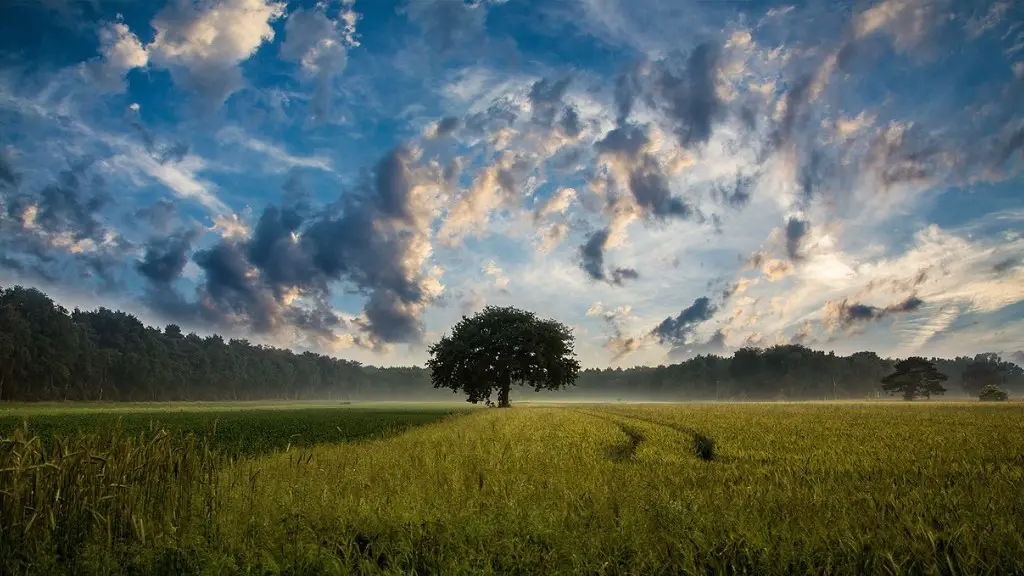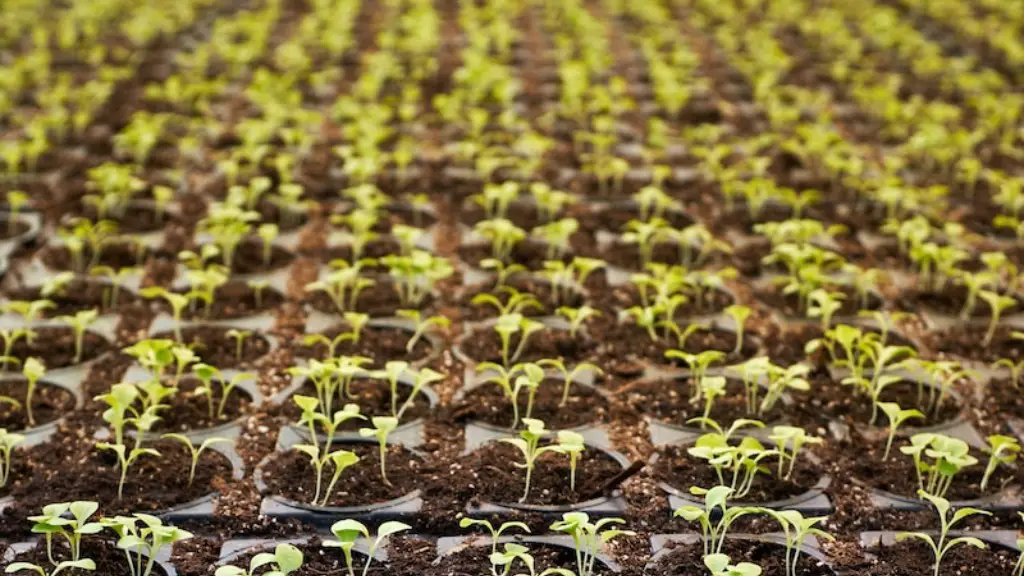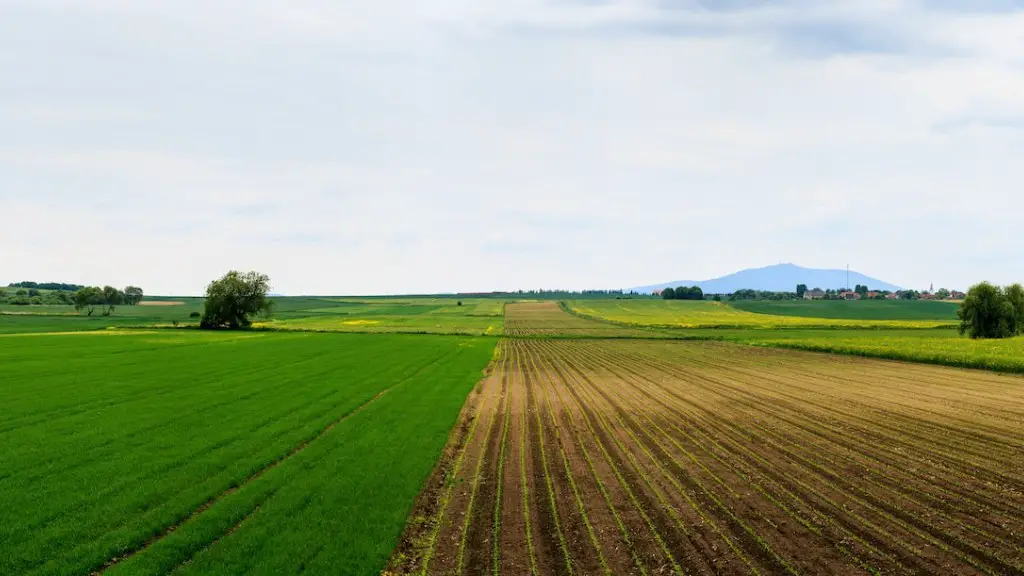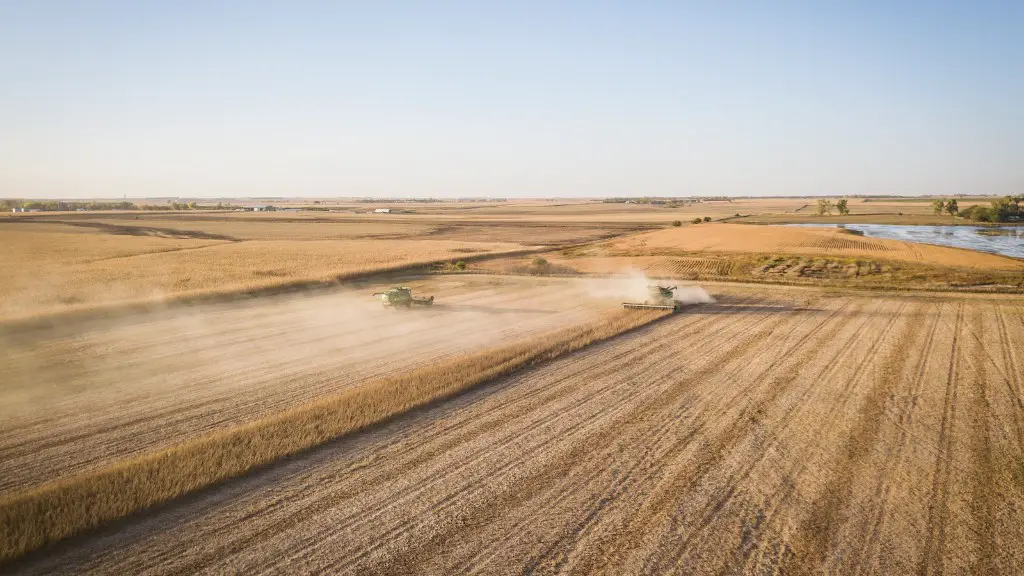Agriculture has been a part of human civilization for millennia and it has had a profound impact on our development. Agriculture allowed for the domestication of plants and animals, which led to the development of civilizations. Agriculture has also had a significant impact on the environment. It has been a major contributor to deforestation, soil erosion, and water pollution.
The impacts of agriculture are far-reaching and complex. At the most basic level, agriculture provides the food we eat and the clothes we wear. It also provides the fuel we use to heat our homes and power our vehicles. Beyond these basic necessities, agriculture also provides the raw materials for a wide variety of industrial and consumer goods. Agriculture also supports wildlife and ecosystems, and helps to store carbon and other key nutrients in the soil.
What impact does agriculture have?
Agriculture has a significant impact on society. It supports livelihoods through food production, provides raw materials for industries, and contributes to strong economies through trade. Agriculture also plays a role in preserving habitats and providing jobs.
Large-scale, conventional farming focuses on intensive single crop production, mechanization, and depends on fossil fuels, pesticides, antibiotics, and synthetic fertilizers. While this system yields high production levels, it also contributes to climate change, pollutes air and water, and depletes soil fertility.
This type of farming also creates monocultures, which are susceptible to pests and diseases. In addition, this system of farming requires large amounts of land, water, and energy, which can put a strain on natural resources.
What are the 5 effects of agriculture
Soil fertility is one of the main environmental effects of agriculture. This is because when crops are grown, they take up nutrients from the soil, which can lead to soil fertility loss. Eutrophication of water bodies is another environmental effect of agriculture. This happens when there is an overabundance of nutrients in the water, which can lead to algae blooms and other problems. Deforestation is another environmental effect of agriculture. This is because trees are often cleared to make way for farmland. Climate change is another environmental effect of agriculture. This is because agriculture can contribute to greenhouse gas emissions, which can cause climate change. Pesticide pollution is another environmental effect of agriculture. This is because pesticides can pollute the air, water and soil.
Agriculture is important for a variety of reasons. It is the main source of raw materials for many industries, it is important to international trade, and it plays a big role in a nation’s revenue. Agriculture also provides employment for many people, and it can help heal the environment.
What is a negative impact on agriculture?
Bad management practices related to agriculture can have a significant impact on water quality. Poorly managed animal feeding operations can lead to overgrazing, which can in turn lead to soil erosion and the leaching of pollutants into waterways. Plowing and the use of fertilizers and pesticides can also contaminate water resources if they are not used properly. These pollutants can have a negative impact on aquatic ecosystems and human health.
There are two large problems facing agriculture in the modern world: The loss of agricultural land through erosion and manmade factors is one of them. The other is the increasing lack of diversity in crops.
Loss of agricultural land is a serious problem because it reduces the amount of land available for farming. This can lead to higher food prices and less food security. In addition, the loss of agricultural land can also cause environmental problems, such as soil erosion and water pollution.
The lack of diversity in crops is also a major problem for agriculture. This is because it increases the risk of crop failure, as well as the spread of diseases and pests. A more diverse agricultural system is more resilient to these risks.
What is the most problem in agriculture?
The loss of agricultural land is a major problem because it results in the loss of productivity and the inability to grow food. The decrease in the varieties of crops and livestock produced is also a major problem because it results in a loss of diversity and the potential for disease and pests to become more widespread.
Negative impacts from agriculture can be serious, including pollution and degradation of soil, water, and air. However, agriculture can also have positive impacts on the environment. For example, agriculture can trap greenhouse gases within crops and soils, or mitigate flood risks through the adoption of certain farming practices. Therefore, it is important to consider both the positive and negative impacts of agriculture when making decisions about its role in the environment.
What are 3 impacts from the agricultural revolution
The agricultural revolution had a variety of consequences for humans. It has been linked to everything from societal inequality—a result of humans’ increased dependence on the land and fears of scarcity—to a decline in nutrition and a rise in infectious diseases contracted from domesticated animals.
Urban farming can offer a number of benefits to both the environment and the people who live in cities. Perhaps the most obvious benefit is that it can help to lower greenhouse gas emissions. This is because food production is a significant contributor to greenhouse gas emissions, and by producing food closer to where it will be consumed, we can reduce these emissions. Additionally, urban farming requires minimal transportation, which also helps to reduce emissions.
Another benefit of urban farming is that it can help to reduce energy use for food production. This is because food production requires a lot of energy, both for growing and for transportation. By producing food closer to where it will be consumed, we can reduce the amount of energy required for food production.
Overall, urban farming can offer a number of benefits to both the environment and the people who live in cities. As the benefits are becoming more and more acknowledged, the trend of urban farming is starting to become quite popular.
How agriculture is very important?
Agriculture can help reduce poverty, raise incomes and improve food security for 80% of the world’s poor, who live in rural areas and work mainly in farming.
With the right policies in place, agriculture can be a powerful tool to reduce poverty and hunger. In fact, agriculture is the main source of income for around 80% of the world’s poor.
Investing in agriculture can help to increase incomes and improve food security. It is estimated that for every $1 invested in agriculture, there is a $4 return in terms of increased incomes.
There are many ways to support small-scale farmers and improve agriculture. One way is to improve access to land, water and other resources. Another way is to provide training and support to help farmers improve their productivity.
investments in agriculture can have a big impact on poverty and hunger reduction. With the right policies in place, agriculture can play a major role in improving the lives of the world’s poorest people.
Agriculture is a vital part of the world economy and plays a significant role in the lives of people across the globe. It is the art and science of cultivating the land, growing crops and raising livestock. Agriculture includes the preparation of plant and animal products for people to use and their distribution to markets. Agriculture provides most of the world’s food and fabrics. It is a complex and dynamic sector that is constantly evolving to meet the ever-changing needs of society.
What is the main importance of agriculture
Agriculture is the primary source of the world’s food supply. It is vital to know that the main purpose of agriculture is to provide food. Agricultural foods such as cassava, yam, rice, beans, maize, millet, and groundnuts are essential to the global food supply.
Climate change, soil erosion, and biodiversity loss are increasing pressures on farmers. Consumers are also changing their tastes in food and are concerned about how it is produced. Farmers must adapt to these changes in order to continue to produce food.
What are three issues in agriculture?
The setting of the table is a metaphor for addressing the three interrelated challenges of feeding a growing population, providing a livelihood for farmers, and protecting the environment. We must work together on all three fronts if we are to make any sustainable progress.
The combination of supply chain challenges, general inflation in the economy, along with strong profits and commodity prices has created bidding-up behavior across the board. The same is likely true for fixed expenses, such as machinery expenses, family living, and labor. This bidding-up behavior is likely to lead to an increase in the cost of goods and services, which will eventually be passed on to consumers in the form of higher prices.
Conclusion
There are a number of impacts that agriculture has on the world. These include environmental, social, and economic impacts.
Environmental impacts of agriculture include the clearing of land for farming, which can lead to deforestation; the use of pesticides and other chemicals, which can pollute water supplies; and the emission of greenhouse gases from livestock and fertilizer use, which can contribute to climate change.
Social impacts of agriculture include the displacement of indigenous peoples and local communities; the growth of agribusiness and the consequent consolidation of farmland; and the exploitation of farm workers.
Economic impacts of agriculture include the provision of food and other essential products; the generation of income and employment for farmers and other workers; and the contribution of agriculture to national and global economies.
The impacts of agriculture are far-reaching and complex. Agriculture is a significant contributor to climate change, both through emissions of greenhouse gases and through land-use changes. Agriculture also has an impact on water resources, both in terms of the quality and quantity of water available. Agricultural practices can also lead to soil degradation, loss of biodiversity, and other environmental problems. Despite these challenges, agriculture is an essential part of the global food system and plays a vital role in supporting human health and wellbeing.





